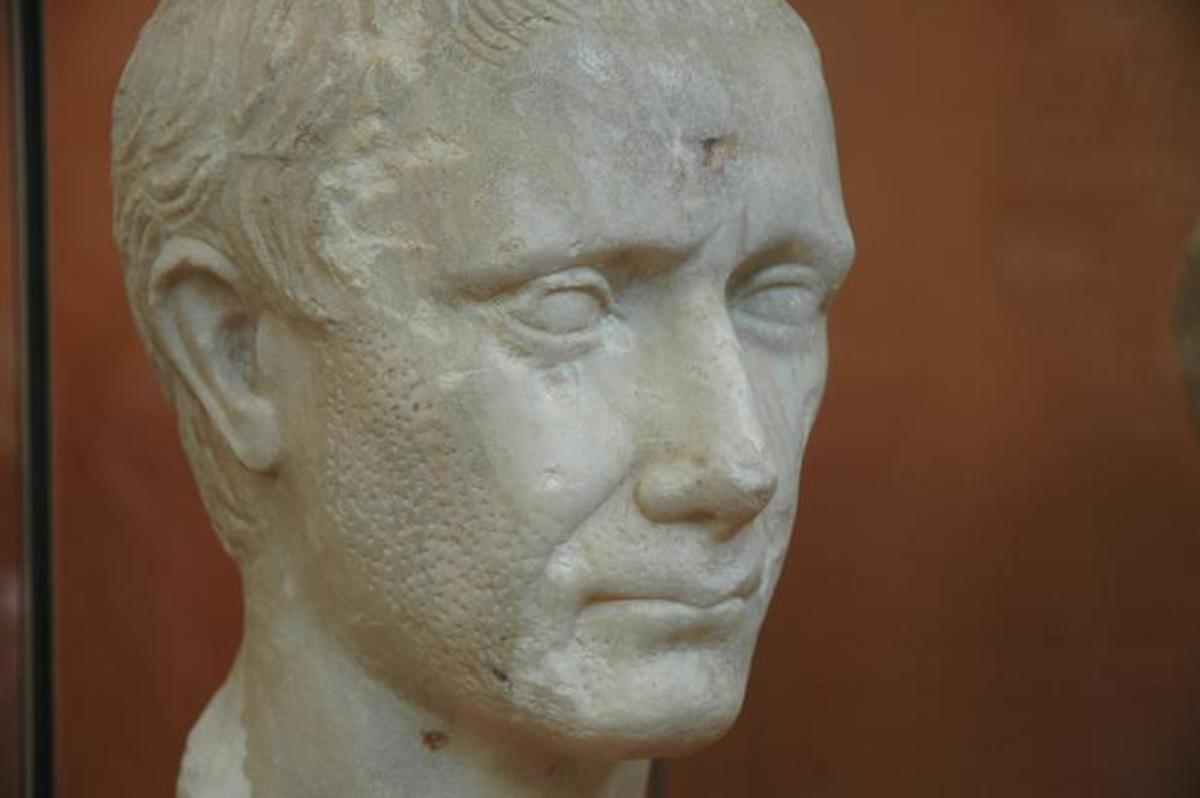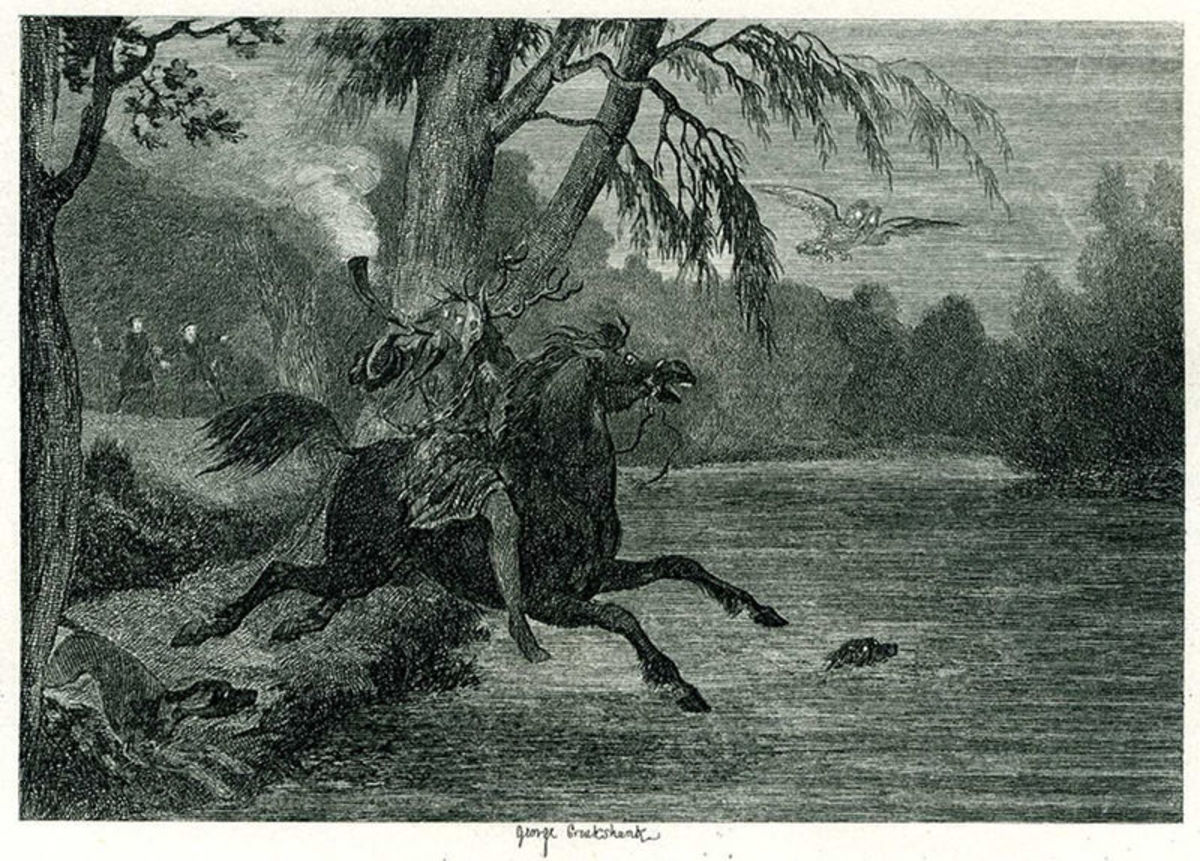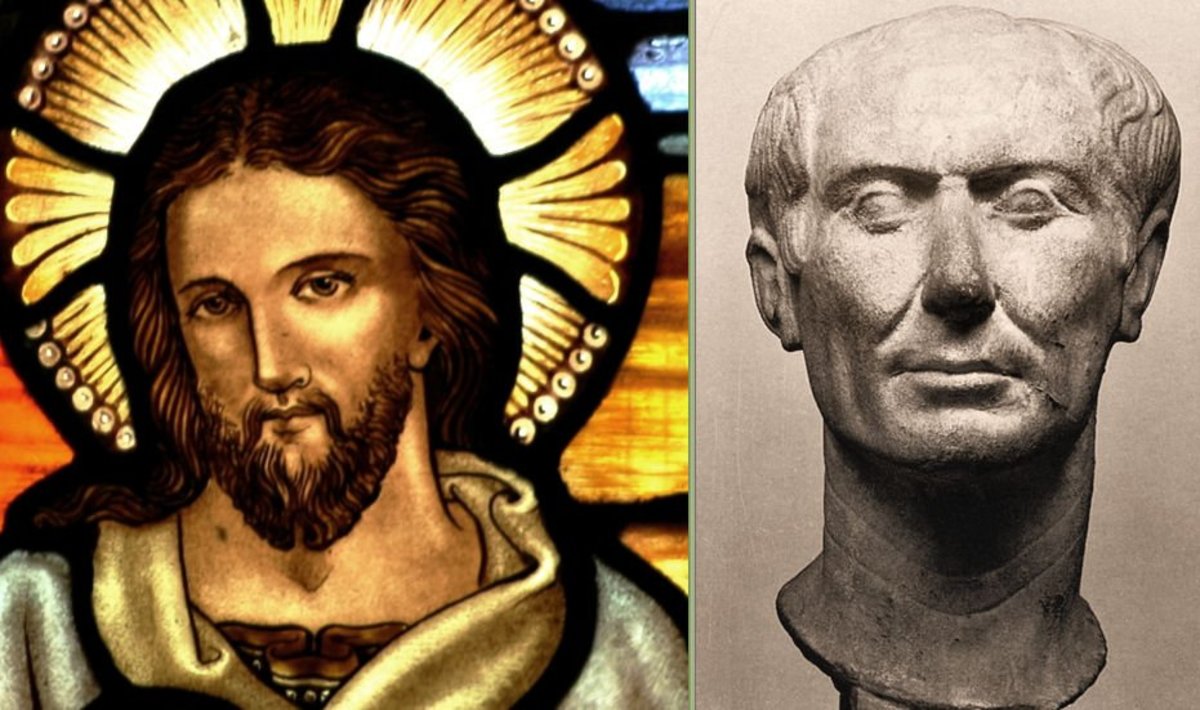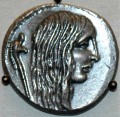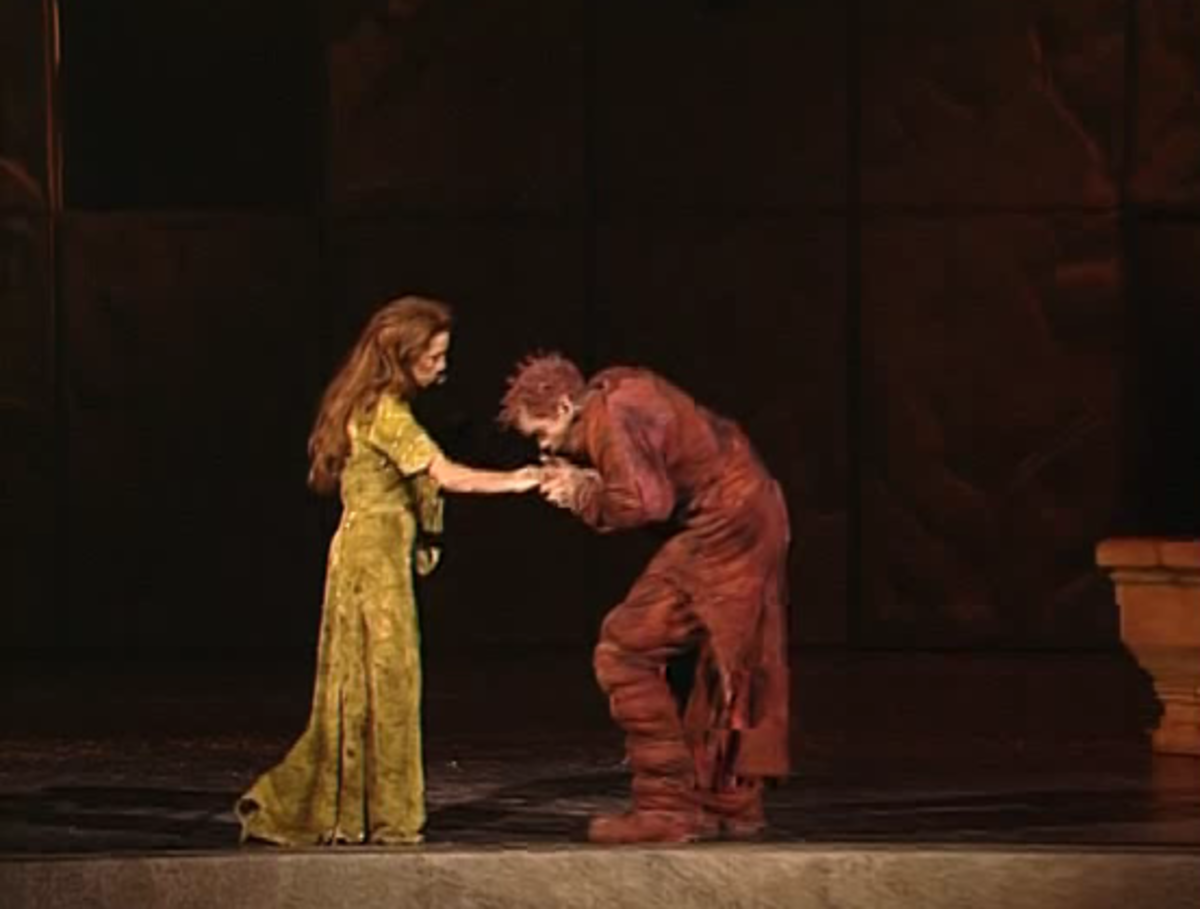Julius Caesar - The Assassination: History and Shakespeare Combined
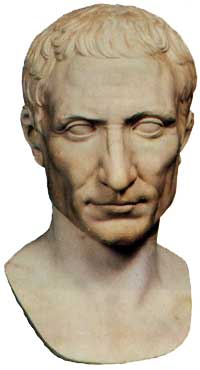
The ideas revolving around the assassination of Julius Gaius Caesar seem to be rather prevalent. Many of the details and opinions are shared by Caesar enthusiasts worldwide, throughout time. The people, places, and times all seem to fall into place with each other. Even William Shakespeare's play, "Julius Caesar", tends to be based on historical facts, for the most part. I believe that most everybody sees this imperative event in enough of a similar light.
According to my information, Caesar's assassination was the demise of his hard work as a brilliant military leader and respected political figure. He was a very powerful man in Rome, and is known as the Last Dictator. He was most definitely a dictator, but the Romans loved him. As a whole, Rome had no problems with Caesar as a ruler. He apparently only refused the crown from Marcus Antonius in order to refute rumors that he only wanted the crown and the title that he truly anticipated.
Historical information that I've read concurs with Shakespeare's idea that Gaius Cassius convinced Caesar's good friend, Marcus Junius Brutus. In both the tragedy and historical records, Brutus appears to be a very good and trustworthy friend of Caesar. There is no evidence that Brutus would have any personal reason to turn against Caesar. It was even thought by a few people that Brutus was Caesar's son; that was how close the two seemed to be. Also, Brutus and Cassius, according to history, had a little bit of altercation in their pasts. It appears a bit evident in the play, as well, when Cassius tries to approach Brutus at first about putting Caesar in a bad light. Brutus seems more reserved toward Cassius, as if he doesn't want to speak to him ("Let me not hinder, Cassius, your desires. I'll leave you."). It is obvious in both cases that Cassius had bones to pick with Caesar. Cassius is well portrayed in the play, in terms of his candid grudge against Caesar. Plutarch (a historical writer) knew that Cassius was hostile toward Caesar personally and for anteceding him. Certain statements that Cassius made to Brutus and the rest of the conspirators badmouthing Caesar, especially in Act I, make it apparent that his dislike for Caesar was irremeable. Cassius had gathered with a few senators about his plot, and they all agreed that it would be best to recruit Brutus into the plot, in order to glorify the idea a little, as the conspirators figured as well in the play.
There was no evidence that a letter was written by Cassius to Brutus urging him to help in the conspiracy against Caesar for the good of Rome. There were, however, various anonymous pleas for him to do so. There was reference in both the play's letter and history's pleas to Brutus' revered ancestor, and how he had driven a past king out of Rome in the same situation, which must have been some sort of motivation for Brutus to join on the plot in addition to the false pleas from Roman citizens. He really wanted to do whatever was best for Rome, in any case. All of these combined convinced Brutus to turn against one of his best friends.
There was a meeting of the senate that Cassius had scheduled in which he planned to sift out those loyal to Caesar and then those who feared Caesar would become king (called a rex, the most revered position, which was a position most dreaded by Republicans for that reason). With Brutus in on the conspiracy, all of the other plotters had enough confidence to follow through with their plan. The refusal to include Cicero, a well-known and popular senator, was very pithy in the play, and was summed up in a single segment of a conversation.
However, there was evidently much contemplation as to his induction as a conspirator. He was rejected because he was apparently too timid and old to keep the secret from Caesar. It just seemed like an interesting piece to compare. There were nearly sixty conspirators by March 15, which brings about a different image than Shakespeare's play does, because the play makes it seems as though there are only ten or twenty conspirators at the most. According to records, many of these conspirators were all close friends or associates of Caesar's who were promoted to high officers.
Brutus truly had barely anyone close to him whom he could discuss the plot with. Brutus' encounter with his wife, who was Cato's daughter Porcia (Portia in the play) about her suspicions of the plot were mentioned in history books, but was dramatized in the play, with added emotion and personality. In reading, I discovered that Brutus did disclose the assassination plans to his wife, which was not revealed in the play. In the play, Porcia had to discover this from the Soothsayer, whom there was no record of in many texts.
The final conspiracy included holding a meeting at the Capitol ( or a "great civic megaplex" of Pompey) and inviting Caesar, which is affirmed in both the play and in texts. That way, the conspirators wouldn't attract any unwanted attention to a spontaneous meeting of the Senate. They wanted to murder Caesar before the statue of Pompey, for more than human strength in the murder, but rather the strength from the spirit of the slain Pompey, whom Caesar had defeated. (In the play, it seems that Caesar only defeated Pompey and drove him out of the city, and in history, it seems that Caesar went as far as to kill him as well. This is also a reason why conspirators wanted Caesar dead; they wanted to avenge the death of Pompey). The reasons as to wanting to murder Caesar at the Capitol weren't specified in the play to much of an extent; it just seemed like the "meeting place".
On the day of the planned murder, March 15, 44 B.C., all of the conspirators wanted everything to fall into their place. The conspirators all visited Caesar at his house, and then continued onto the Capitol, which seems to coincide with the play. When Caesar was a little late in being held back by his wife, who seemed to sense danger in going to the meeting, the conspirators sent Decius (Decimus Brutus, in history) to try to persuade Caesar to ignore his wife Calpurnia's fears and to go onto the tryst. Facts and the play both share this information, except for the fact that Caesar was apparently late. The play says the conspirators are all waiting for Caesar either in the crowds or sitting at the Capitol. There wasn't nearly as much waiting before the murder noted by Shakespeare as there truly was. The day was greatly awaited by the conspirators, in reality, and Cassius even considered it to be his son's day of becoming a true man.
Caesar entered the area with Antony, but then Gaius Trebonius came and started conversing with Antony to keep him occupied, away from their target. This is not mentioned in the play at all. Although, at one point in the play, the conspirators thought of murdering Antony with Caesar since he was so close to him, Brutus changed their minds by saying that Antony was nothing without Caesar, thus saving him, ironically.
Caesar sat down in his curule chair as the conspirators conversed with him and each other. At his sitting, they all crowded around him. Not mentioned in the play, Trebonius goes to Caesar and kisses his hand in memory of a banished friend. The play describes everything that was said while history notes everything that was done. It goes as far as to describe who struck Caesar first with their dagger (whom was Casca), who grabbed him and held him down (whom was Tillius Cimber), and all of the meticulous details. The entire murder was very well organized. According to textbooks, he was stabbed twenty-three times all over his body. Caesar tried fighting off the blows to some extent, but in seeing his good friend Brutus with the dagger in his hand, he said either "Et tu, Brute?", which could be interpreted as "You too, my child?" or "Et tu, Brutus?" It left him with no will to live, in both the play and the truth, although the truth sets the scene with much more detail, although the play is still accurate.
Also, to my knowledge, history says that the murder took place in public, which is also lightly mentioned in the play, but is made much more obvious. No one even went to help Caesar, in fear of his or her lives. After Caesar died at the base of Pompey's statue, the conspirators felt jubilant in "freeing Rome" and run out to try and explain to the populace the dynamics of what they had done. According to Plutarch, Brutus, with bloodied hands, made a speech to the public trying to condone their actions. As stated by the play and by Plutarch, Antony came out of hiding from his fear and tried pitching the people against the conspirators as Octavius, Caesar's grandnephew and Rome's future leader, arrived in Rome.
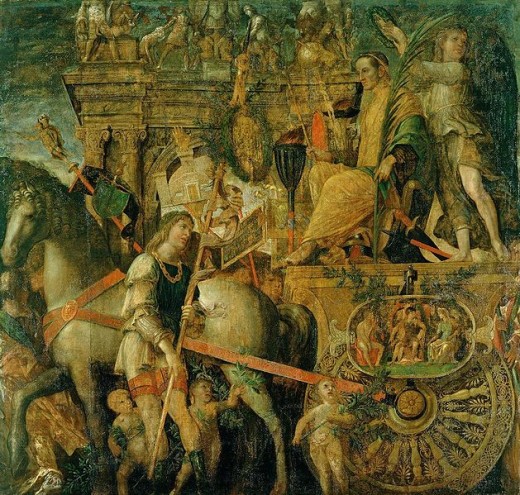
In conclusion, the characters are rather historically based, although it seems like characters are kind of assigned lines in order to include facts and important points in the play. It's harder to add personality to characters that one isn't familiar with but can't exactly be created without being historically incorrect. It's also hard to try and distinguish a line between incorrect and correct characteristics of a character a couple thousand years old.
There is really nothing wrong in either of Shakespeare's play or in books. The differences are that there are selected information in one and some in the other. The facts agree well with the play. Naturally, the play appeals more to the emotional, personal people. The textbooks and records reveal nothing more than facts. It's really like the play captures the dialogue and the factual texts focus on the action. Conversation can give one a different outlook and more information than old historical facts can, sometimes.

